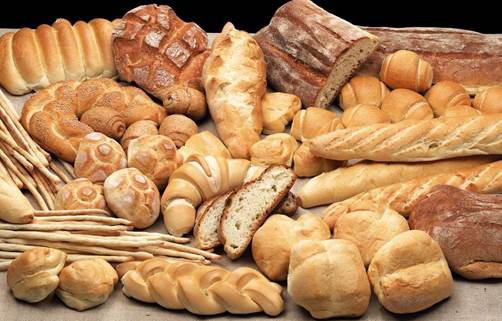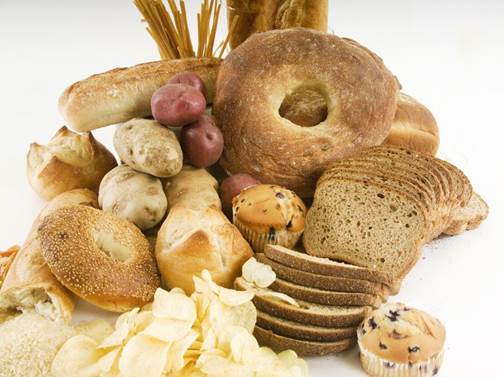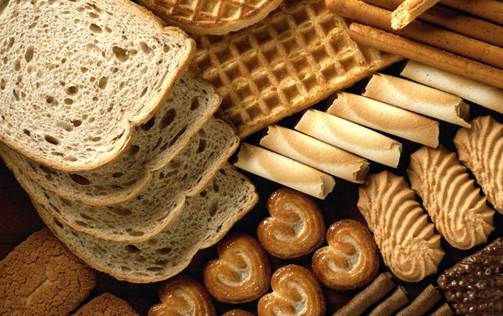When you’re trying to slim down and look
super-toned, carbohydrates may be one of the first things you cut out. Popular
diets such as Atkins, Paleo, South Beach and Dukan all focus on reducing carbs
and eating more protein and fats. But if you want to fuel your running program,
especially endurance sessions, carbohydrates are a must, as they provide your
body with its preferred energy source for running.
Time it right
Carbohydrate is the best energy source for
your body during intense exercise. It’s found in two main forms in the body:
glycogen and glucose. Glycogen is stored in your muscle and liver cells, while
glucose, the body’s preferred energy source, is found in the blood. As muscle
glycogen levels begin to fall during exercise, especially in sessions over 90
minutes, eating carbohydrate during your workout helps maintain the optimum
level to delay fatigue. Your body uses blood glucose first, and when you take in
carbs, this is topped up. In addition, incorporating carbohydrate into your
post-workout snack or meal can speed up recovery, restoring your glycogen
levels in time for your next training session.

Your
body uses blood glucose first, and when you take in carbs, this is topped up.
But not all carbs are equally beneficial.
Ditch the processed, refined carbohydrates (such as white bread, pasta, white
rice, biscuits and cakes), as they offer little in the way of nutrients and can
result in fluctuating energy levels. While grains are a good source of
carbohydrate, some people find them, particularly those containing gluten
(wheat, barley and rye) difficult to digest. Other nutritious carbohydrate
sources include fruits, vegetables - especially starchy ones (carrots, sweet
potato, squash, pumpkin, beetroot, parsnips) - potatoes, low-fat dairy foods,
beans and pulses. Ancient grains such as quinoa and amaranth are also
nutritious options. The amount of carbs you need is key to your performance.
Here’s a guide of what to eat when.
During the day: For sustained energy, aim
to include low Glycaemic-index carbohydrates with each meal and snack. Think
whole grains, oats and starchy vegetables.
Before a run: About 30 minutes before you
set off, opt for a quick-releasing source of carbohydrate (around 20-30g)
that’s easy to digest, such as a handful of raisins, energy bar, smoothie or
banana. For long sessions, eat something more substantial, such as a bowl of
porridge, about an hour before your run.
During training: If you’re training for
longer than 90 minutes, you may need to refuel in the form of a
carbohydrate-based sports drink or energy gel (see box, below).

The
amount of carbs you need is key to your performance. Here’s a guide of what to
eat when.
After training: Aim to replace your
glycogen stores within 30-45 minutes of longer runs. For maximum benefits,
include carbohydrates with protein (3:1 ratio) to aid muscle recovery and
repair. Depending on the length and intensity of your training, this may be
around 40-60g carbohydrates. Ideal quick and easy snacks include a protein
shake with fruit, a bowl of fruit salad with Greek yoghurt or an energy bar.
Are You Eating Enough?
If you’re lacking in energy, suffering from
muscle soreness, fatigue or reduced performance, you may not be fuelling your
body sufficiently. This may mean you’re not eating the right carbs at the right
times, or your overall carbohydrate intake is too low. While everyone’s needs
are different, the following guide is a good place to start:
General training and low-intensity workouts
-around one hour’s training per day: 5g carbs per kg of body weight per day.
Endurance workouts and high-intensity sessions
one to three hours’ training a day: 7-10g carbs per kg of body weight per day.

This
may mean you’re not eating the right carbs at the right times, or your overall
carbohydrate intake is too low.
For a woman weighing nine stone (57kg),
training at a low intensity, this equates to around 280g carbohydrates a day.
This could include a bowl of porridge with raisins, an energy bar before a run,
fruit smoothie after a run, baked potato as part of lunch followed by fruit and
yoghurt, cereal bar for a snack or handful of dried fruit, then in the evening,
a sweet potato or rice with lots of vegetables.